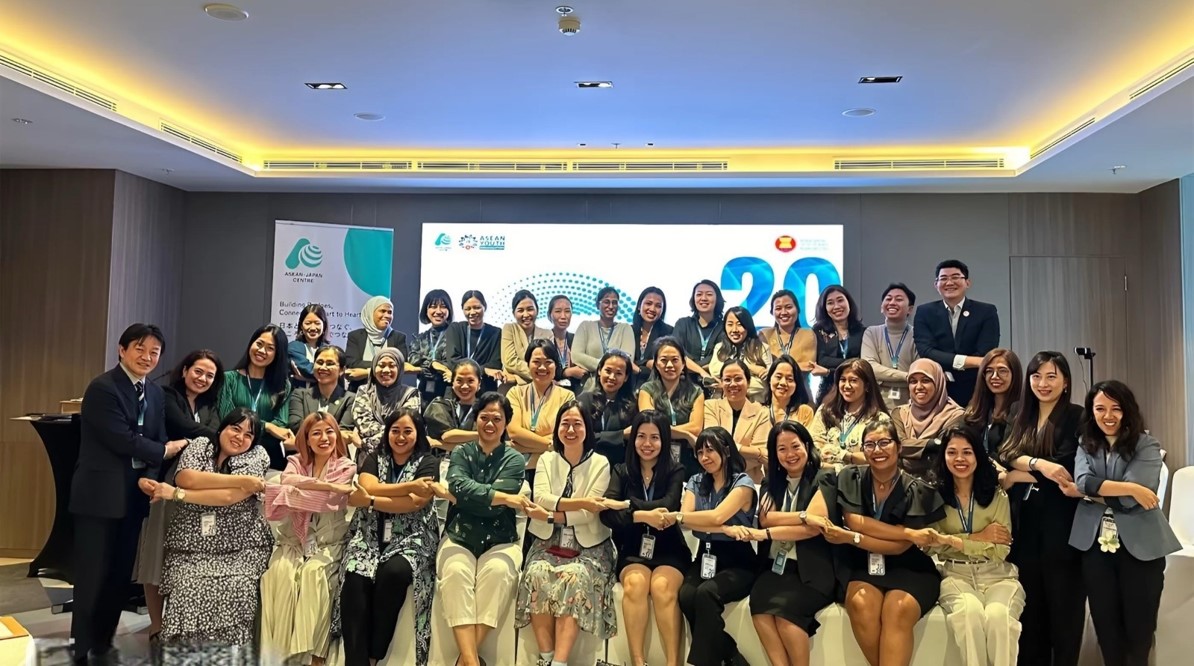Thirty-five young women entrepreneurs from across ASEAN and Japan gathered in Vientiane, Lao PDR, on November 5-6, to discuss the challenges and opportunities related to innovation and sustainability in their businesses. The Roundtable Discussion of Young Women Entrepreneurs in ASEAN and Japan was organized by the ASEAN-Japan Centre in partnership with the ASEAN Youth Organization, with support from the ASEAN Coordinating Committee on MSMEs, ASEAN ACCESS, the East Asia Business Advisory Council, and the Lao Businesswomen Association.
The discussions centred on two major themes: Enhancing Connectivity and Building Resilience. Participants explored improving financial inclusion, encouraging gender-smart investments, and building digital skills to ensure women’s safe participation in the digital economy. They also discussed closing the gender divide in MSME ownership and promoting sustainability practices that empower women to lead socially and environmentally responsible businesses.
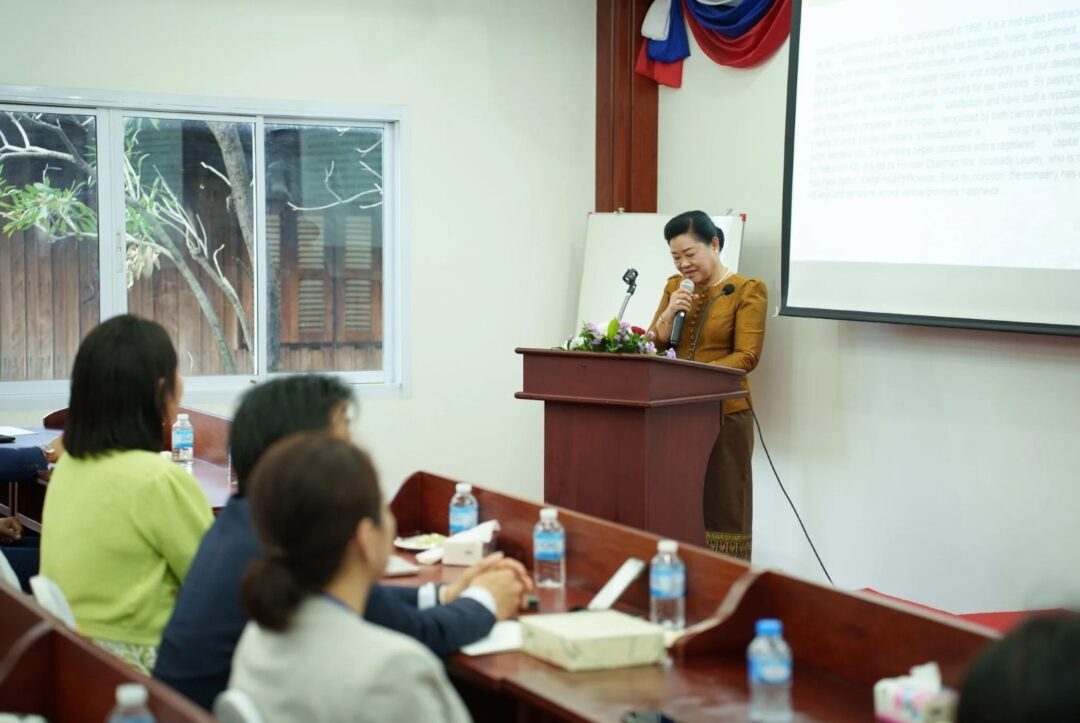
On day 2, participants visited two leading businesses in Lao PDR who support women-owned MSMEs and a woman-owned enterprise, respectively: Enterprise & Development Consultants Co., Ltd. (EDC) and Leuxay Construction Co., Ltd., gaining valuable insights into successful operational strategies and best practices for women-owned enterprises in the region. The participants had a meaningful engagement with Mdm. Leuxay, matriarch and founder of Leuxay Construction, who shared her insights and strategies in running a business while balancing family responsibilities, breaking socio-economic barriers, and successfully expanding her business in the country.
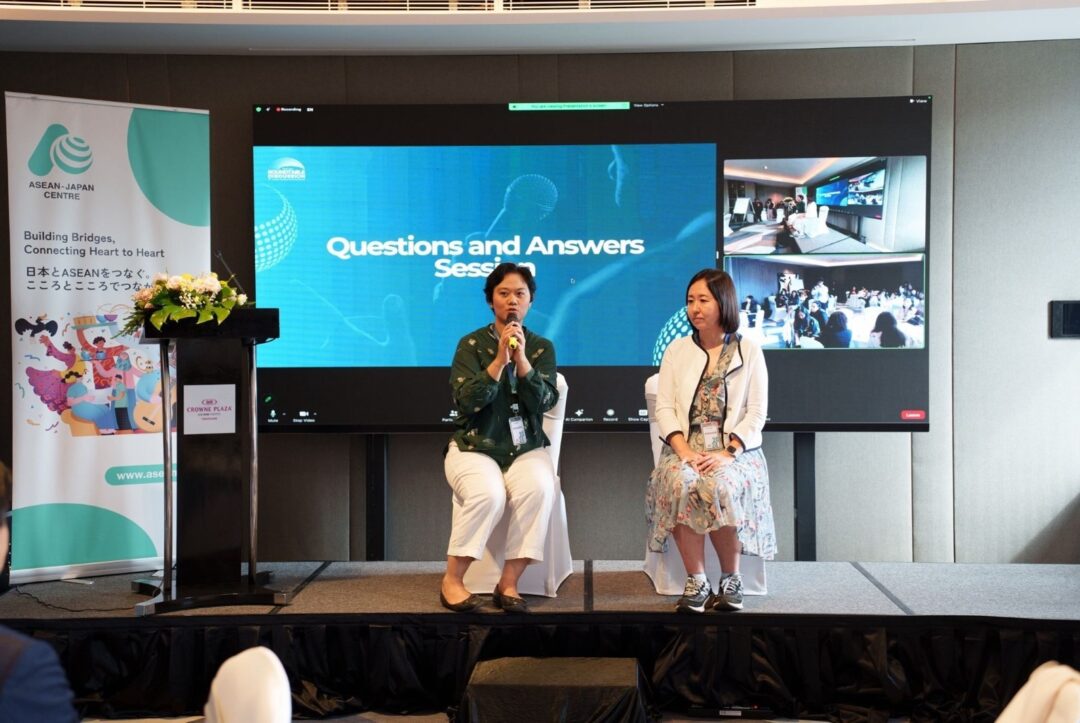
Session 1: Financial Inclusion and Gender-Smart Investments
Speaker: Ms. Maco Yoshioka, CEO and Founder of Single Mothers’ Sisterhood, Japan
Ms. Yoshioka highlighted strategies for enhancing financial inclusion and promoting gender-smart investments, drawing from her experience supporting single mothers in Japan. The session discussion emphasized the importance of offering flexible funding solutions, allowing recipients to access grants and initiatives without financial burdens.
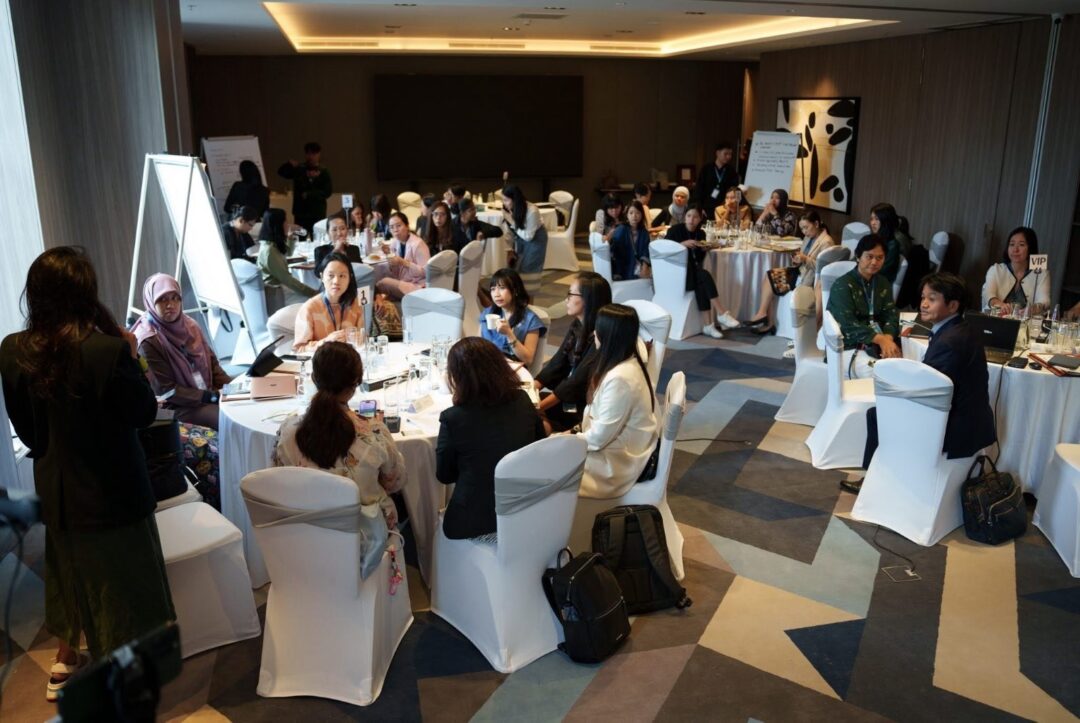
Session 2: Digital Skills, Digital Financial Literacy, and Participation in Safe Digital Spaces
Speaker: Ms. Prima Desita, CEO and Founder of Bersama Indonesia and ASEAN ACCESS Network Partner
Ms. Desita underscored the need to build digital skills and financial literacy, particularly for women entrepreneurs navigating the digital economy. The discussion expanded to address cybersecurity, emphasizing that installing security systems alone is insufficient. Continuous oversight and regular evaluation are necessary to ensure the tools remain effective and adaptable to emerging threats.
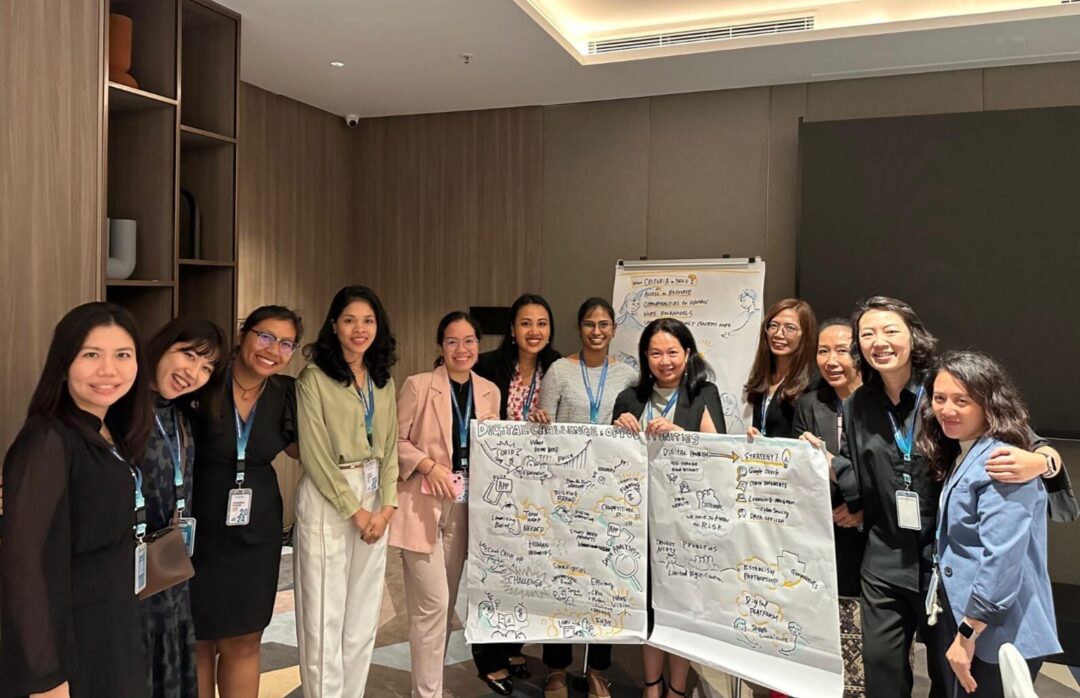
Session 3: Closing the Gender Divide in MSME Ownership
Speaker: Dr. Rawida Wiriyakitja, Dean of the School of Business, University of the Thailand Chamber of Commerce
Dr. Rawida presented insights into addressing the gender divide in MSME ownership, citing research and real-world examples from the ASEAN region. The session explored the importance of women supporting each other through mentorship, peer support, and networking.
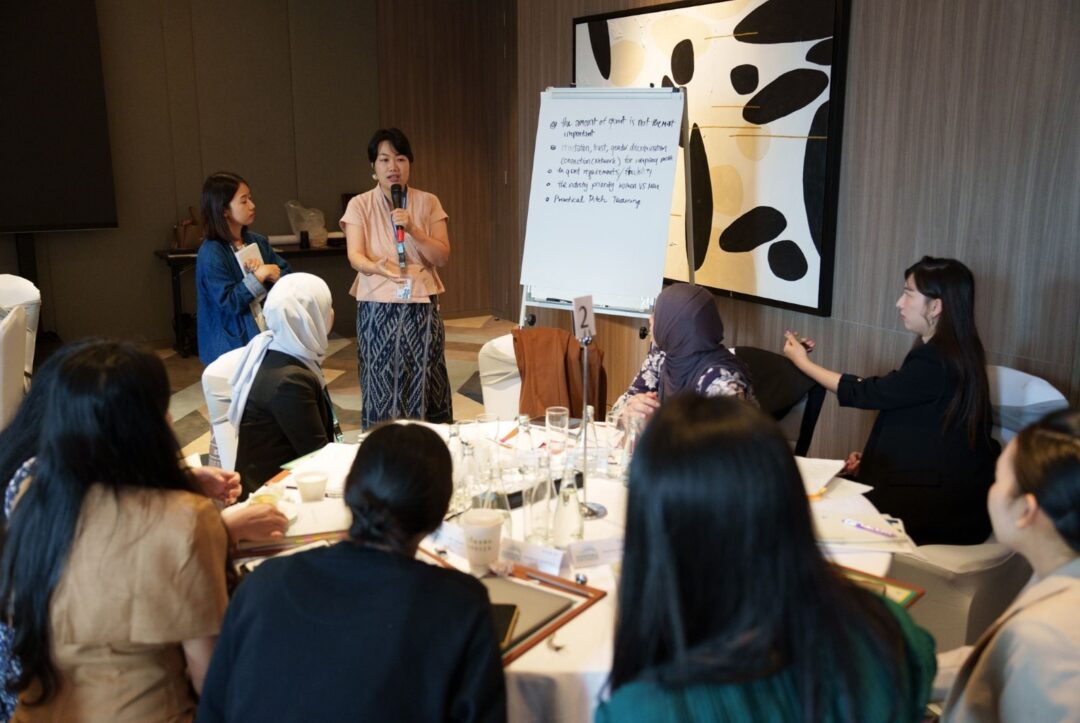
Session 4: Sustainability Practices and Empowering Women Entrepreneurs
Speaker: Ms. Katrina Inandia, Head of Impact and Sustainability at Amartha
Ms. Inandia focused on the role of sustainability practices in empowering women entrepreneurs, emphasizing Amartha’s efforts to provide financial services to underserved women in rural areas. The session highlighted the need to integrate sustainability into business models for long-term success.
Key Takeaways from the Discussion:
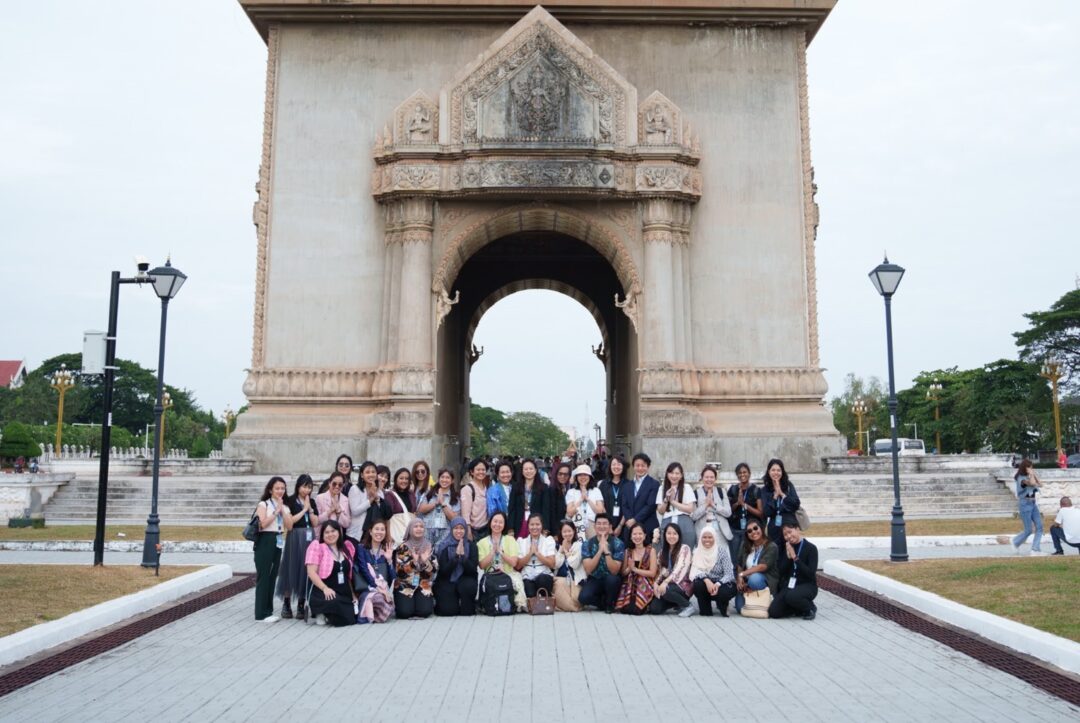
- Women Supporting Women:
A central theme of the discussion was the power of mentorship, peer support, and networking in empowering women across various sectors. Participants agreed that fostering a culture of solidarity among women is crucial to advancing gender equality, especially in male-dominated industries. By supporting one another, women can break down barriers and drive meaningful change. - Enabling SDG Practices in Business Plans:
Participants explored how businesses can effectively integrate SDGs into their strategies to ensure long-term success. A key takeaway was the need for clear, measurable targets and transparent implementation. Participants emphasized that setting concrete indicators to track progress and ensuring accountability are vital for successful SDG integration. This approach not only allows businesses to measure their impact but also builds trust with stakeholders by demonstrating a commitment to sustainability and responsible practices. - Access to Grants and Loans:
Women entrepreneurs often face difficulties accessing financial resources due to strict administrative regulations, intense competition with larger companies, and inflexible funding options. These challenges limit their ability to grow and scale their businesses. There was a consensus that simplifying administrative processes and offering more flexible, accessible financial solutions would help break down these barriers and empower women entrepreneurs to succeed. - Building Support Systems for Women Entrepreneurs:
The importance of strengthening networks among women entrepreneurs was a central theme of the discussion. Participants highlighted that a robust network could provide the support necessary for women to overcome obstacles and seize new opportunities. By building these networks, women can connect with mentors, share best practices, and advocate for policy changes that benefit women-led businesses. These connections are vital for closing the gender gap in entrepreneurship, increasing access to resources, and fostering greater collaboration across sectors. Ultimately, stronger networks create a sense of community that can drive collective success and sustainability.
The full findings of the discussions will be launched in a report at the ASEAN-Japan Young Women Entrepreneurs’ Summit to be held in Kuala Lumpur, on February 13, 2025.


